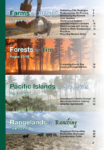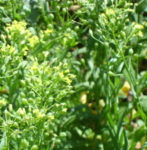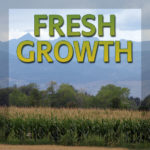The educational materials listed on this page are about Farm Business Management.
Growing and selling products profitably is critical to an agriculture business, but there are other aspects that are essential to farm business management. While it is difficult to find grants to start a farm, operating or starting a farm require a basic understanding of ag credit, including FSA loans (and other farm loans), and how to obtain farm credit for an agriculture loan. Savvy producers understand agricultural finance and agricultural accounting, and keep a close eye on farm finances. Farmers need to understand agricultural marketing and may need to know demand for a specific crop, such as with apple marketing. Starting a small farm may include finding land through FarmLink. While some new farmers may get started with a farm internship, others may useless formal farming training or more formal agriculture education. Ultimately, farmers also need to learn about farm labor, farm labor laws or farm succession planning at some point in their career. Key practices include marketing management, financial management, community-supported agriculture, risk management, agricultural finance, whole farm planning, farm succession, land access, labor/employment.
SARE’s bulletin Scaling Up Your Vegetable Farm for Wholesale Markets offers alternatives for producers to market their products through unconventional channels. Building a Sustainable Business aids producers in developing a sustainable and profitable business plan for their enterprise. Building Sustainable Farms, Ranches and Communities gives producers options for agricultural loans, grants and technical expertise. Farmers looking to transition to organic will find Organic Transition: A Business Planner for Farmers, Ranchers and Food Entrepreneurs useful for business planning.
Showing 1-4 of 4 results

Adapting to a Changing Climate
Western SARE has released our 28-page publication, Adapting to a Changing Climate: How Western SARE is Meeting the Needs of a Warming West.

Growing Camelina for Biodiesel
This bulletin investigates the tradeoffs for a potential on-farm biodiesel production enterprise from dryland camelina to understand when and if it can be economically viable. Is Biodiesel from Camelina Right for You? This bulletin is based in part on on-farm trials evaluating camelina sativa production. Download an interim report from this research.
Sustainable Agriculture Farming Systems Project
Public concerns regarding pesticide misuse, food safety, water use and contamination, and depletion of non-renewable resources have motivated the reevaluation of some of the practices of conventional agriculture and the exploration of alternative, more sustainable approaches to growing food. In 1988, the Sustainable Agriculture Farming Systems (SAFS) project was established at the University of California’s […]

Fresh Growth Podcast
Fresh Growth: Approaches to a More Sustainable Future from Western Ag Practitioners introduces you to farmers and ranchers from around the western United States who are finding innovative sustainable practices that enrich the natural resources we all care about. These successful multi-generational operations experiment with new ideas and are making it pay. Listen in as […]